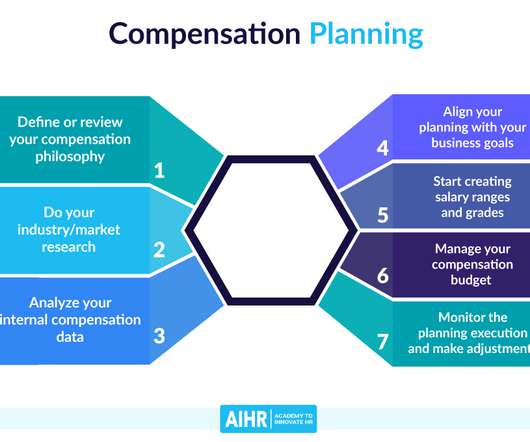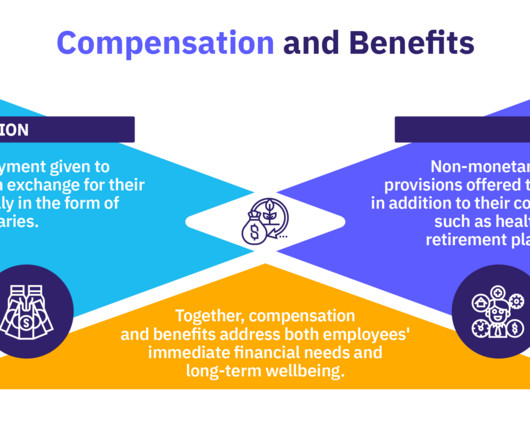Compensation Planning in 7 Actionable Steps
AIHR
JANUARY 25, 2022
Different types of compensation include base pay, company bonuses, stock options, and benefits like insurance, pension programs, and parental leave. Even so, a recent study by Payscale found that less than 50% of companies have a strategic compensation plan. It can also include bonuses and tips.














Let's personalize your content